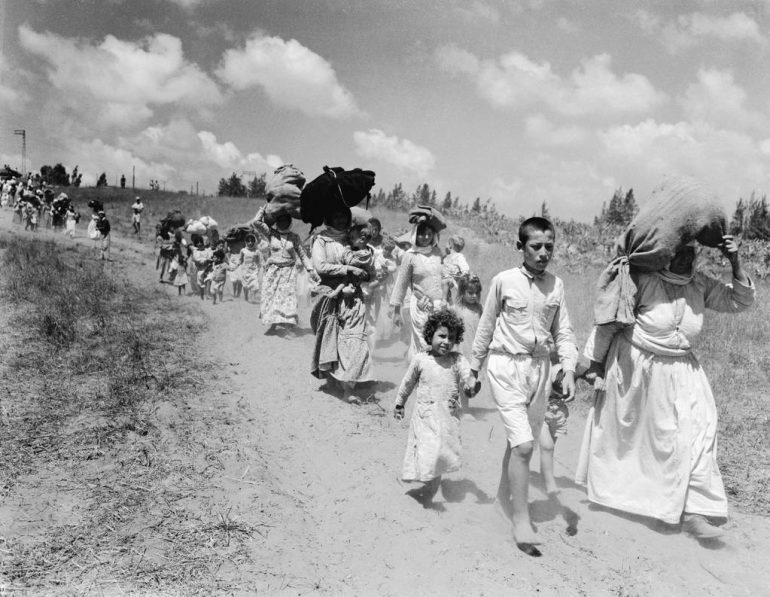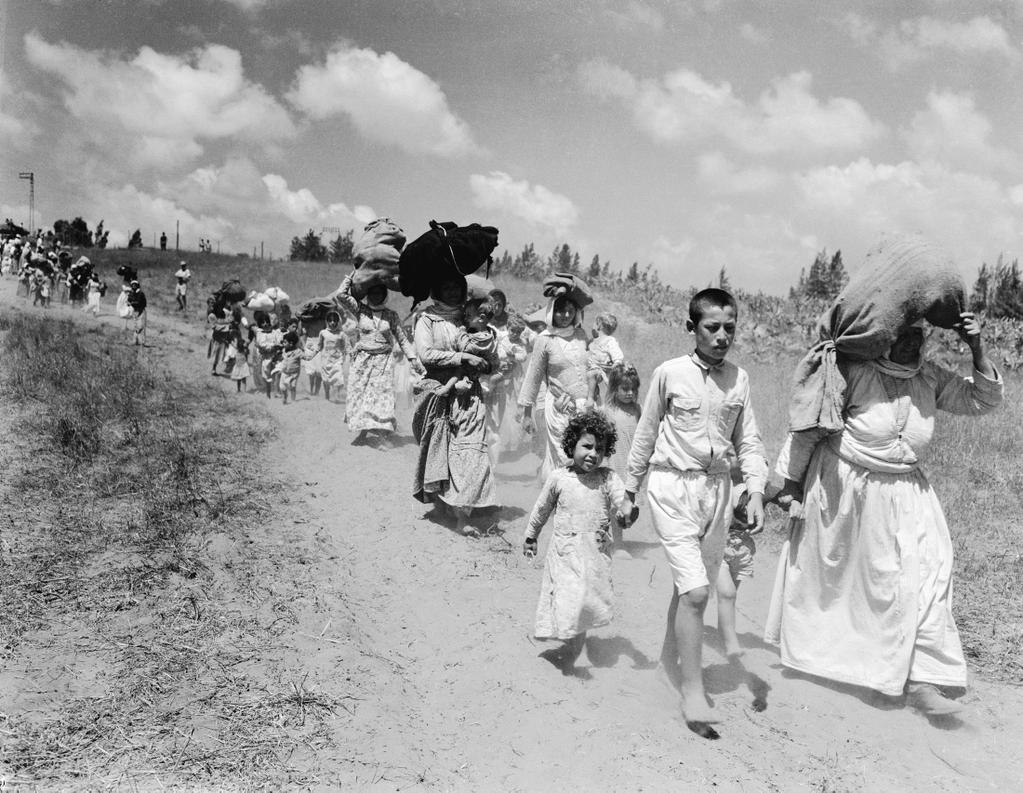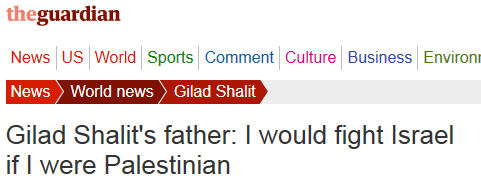We recently posted about an Evening Standard review of a play being performed at Finborough Theatre in London called Returning to Haifa. Though the review noted that the play was based on a novel by a Palestinian named Ghassan Kanafani, who they refer to as an “acclaimed Palestinian writer” killed by the Mossad, it failed to mention that Kanafni was a high-ranking member of the PFLP terror group – a fact which would help readers understand why the “writer” was targeted by Israel.
Though we complained to editors about the omission, the piece has not been amended.
A Guardian review of the play published the same day similarly fails acknowledge Kanafni’s terror background, and, more importantly, misleads on the historical context of the play.
Here’s the sentence in question by Guardian theatre critic Michael Billington:
The play shows a Palestinian couple returning to Haifa in 1967 in search of the house and son they were forced to abandon 20 years previously during mass evictions by Israeli forces.
Were their “mass evictions” of Haifa’s Arabs by “Israeli forces”, as the Guardian suggests?
Middle East historian Efraim Karsh addressed this topic in long article, addressing the larger accusation that Arabs of 1948 were ethnically cleansed by Israeli forces, published at Commentary Magazine in 2000.
Karsh acknowledges that “when hostilities between Arabs and Jews broke out in 1947, there were 62,500 Arabs in Haifa”, and that by “May 1948, all but a few were gone”, but then explains why. Citing recently declassified documents, Karsh begins by explaining that the “Arab flight from Haifa began well before the outbreak of the hostilities that followed UN’s November 29, 1947 partition resolution”.
On October 23, over a month [before the UN resolution], a British intelligence brief was already noting that “leading Arab personalities are acting on the assumption that disturbances are near at hand, and have already evacuated their families to neighboring Arab countries.” By November 21, as the General Assembly was getting ready to vote, not just “leading Arab personalities” but “many Arabs of Haifa” were reported to be removing their families. And as the violent Arab reaction to the UN resolution built up, eradicating any hope of its peaceful enforcement, this stream of refugees turned into a flood.
Thus it was that, by mid-December 1947, some 15,000-20,000 people, almost a third of the city’s Arab population, had fled…”
Karsh notes that the official leadership of the the Arab Higher Committee was condoning this mass flight and, as the months passed, and Britain’s departure neared, “such views gained greater popularity” among Arab leadership.
Even the [Grand] Mufti, who had warned that “the flight of . . . families abroad will weaken the morale of our noble, struggling nation,” was not averse to the evacuation of the nonfighting populace. In March 1948, the AHC [Arab Higher Committee] evidently ordered the removal of women and children from Haifa;
Karsh’s account of the flight of Arabs from the city continues:
By early April 1948, according to Rashid Hajj Ibrahim, the head of the National Committee, the city’s Arab populace had dwindled to some 35,000-40,000….By the time the final battle for the city was joined a few weeks later, the number had fallen still further, and only about half the town’s original community remained.
Not for long: disheartened by the desertion of their local military leaders, and petrified by wildly exaggerated accounts of a Zionist atrocity at the village of Deir Yassin near Jerusalem, the remnant now took to the road. In the early morning of April 22, as Hagana forces battled their way to the downtown market area, thousands streamed into the port, still held by the British army. Within hours, many of these had fled by trains and buses, while the rest awaited evacuation by sea.
Despite a truce offer by the Hagana, personal reassurances from their chief liaison officer in Haifa that Arabs who stayed in the city “would enjoy equality and peace”, and a personal appeal by the city’s Jewish mayor asking them to remain, the Arab leadership chose to reject these overtures and facilitated, instead, a final evacuation.
Karsh continues:
April 25, the American consulate in Haifa was reporting that the “local Mufti-dominated Arab leaders urge all Arabs [to] leave [the] city and large numbers [are] going.” Three days later it pointed a clear finger: “Reportedly Arab Higher Committee ordering all Arabs [to] leave.” Writing on the same day to the colonial secretary in London, Sir Alan Cunningham, the British high commissioner for Palestine, was equally forthright: “British authorities in Haifa have formed the impression that total evacuation is being urged on the Haifa Arabs from higher Arab quarters and that the townsfolk themselves are against it.” Finally, a British intelligence report summing up the events of the week judged that, had it not been for the incitement and scaremongering of the Haifa Arab leadership, most Arab residents might well have stayed.
Karsh concludes:
In Haifa, one of the largest and most dramatic locales of the Palestinian exodus, not only had half the Arab community fled the city before the final battle was joined, but another 5,000-15,000 apparently left voluntarily during the fighting while the rest, some 15,000-25,000 souls, were ordered or bullied into leaving against their wishes, almost certainly on the instructions of the Arab Higher Committee. The crime was exclusively of Arab making”. There was no Jewish grand design to force this departure, nor was there a psychological “blitz.” To the contrary, both the Haifa Jewish leadership and the Hagana went to great lengths to convince the Arabs to stay.
This conclusion isn’t just reached by Karsh, but by Israeli historian Benny Morris, and even radical left historian Illan Pappe, who acknowledged – in his book ‘The Israel Palestine Question‘ – that “Jewish troops had no clear intention of provoking an Arab exodus” and that “their military strategy was not calculated to produce such an outcome”.
The suggestion by the Guardian critic that Arabs in Haifa faced mass expulsion by Israeli forces is categorically untrue.






